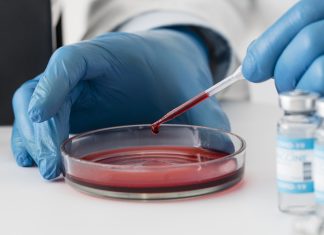The drug markets of the Eurasian Economic Union (EAEU) can be scaled through integration This will make it possible to fill the markets of the union’s members with drugs at affordable prices. This statement was made by Timofey Nizhegorodtsev, Deputy Head of the Federal Antimonopoly Service (FAS) of Russia, at the IV Eurasian Economic Forum, at the session called “Pharmaceutical Market Development: Access and Accessibility”.
The Deputy Head of the FAS noted that a number of factors are currently hindering the creation of a single EAEU drug market, including the need to recognize registration certificates and comply with national labeling, quality control, and the international GMP standard, as well as the lack of common agreed instructions and packages. In addition, registration of a drug under the EAEU procedure in the reference state does not automatically grant the right to apply for it in other countries of the union.
Nizhegorodtsev suggested that the Union’s member states recognize the registration of one of the EAEU countries — Russia, for example — as a reference. Russia accounts for approximately 80% of the pharmaceutical market and 90% of all drug registrations. He claims that the larger the state’s consumer market, the lower the prices manufacturers can offer due to the large volume of drugs purchased.
Additionally, he believes that uniting into a single market is necessary, which can be achieved through the integration of digital systems, the centralization of demand, and joint procurement. He claims that this will reduce barriers and increase the availability and diversity of purchased medicines by flooding these countries’ markets with them at lower prices.
Aleksey Kedrin, the chairman of the board of the Association of Pharmaceutical Manufacturers of the EAEU (AFPEAEC), also spoke at the forum. He believes that flexible adjustments to regulatory approaches at the national and Eurasian levels are necessary to increase the availability of medicines for EAEU patients. The head of the AFPEAES formulated specific initiatives in his speech:
- access of EAEU Medicines to Public Procurement: legislating the recognition of state registration of medicines in any EAEU member state as sufficient for admission to procurement in other Union countries. For example, in Kazakhstan, it is possible to do this by updating Order No. KR DSM-326/2020;
- recognition of expert reports: early implementation of agreements with regulators of the Republic of the Republic of Kazakhstan to simplify the procedure for recognizing expert reports from reference countries;
- unification of labeling codes: prompt implementation of the EEC Council Decision No. 108 on mutual recognition of drug labeling codes since the introduction of the system in two or more EAEU countries;
- implementation of a traceability system: The early completion of Russia’s ongoing drug traceability experiment will serve as the basis for a future union-wide system that will increase the safety and transparency of the pharmaceutical market.
Aleksey Kedrin said, “The implementation of these measures will allow the EAEU pharmaceutical industry to fulfill its function as a guarantor of continuous growth in the quality of life for citizens of Union countries and ensure access to effective, modern medicines.”
Forming a single pharmaceutical market within the EAEU is one of the main conditions for developing the industry. According to the Eurasian Economic Commission (EEC), in March 2025, 30,150 applications for registration of medicines under the rules of the EAEU were submitted, The representative of the EEC, Anna Kravchuk, told GxP News that since the entry into force of the agreement on common principles and rules for the circulation of medicines, signed 10 years ago, 84 regulatory acts have been adopted regulating the process of drug registration and circulation.




